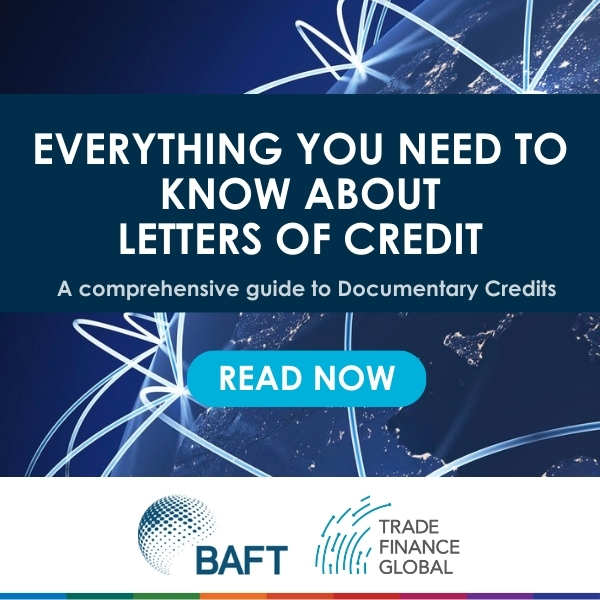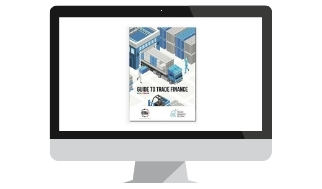Dispute Resolution
Examining documents under documentary credits will often result in a difference of opinion as to whether the documents comply and, if considered to be discrepant, which discrepancies are applicable. In most situations, the discrepancies are apparent and result in no disagreement between the concerned parties.
Furthermore, although disputes can arise between any involved parties, they can generally resolve such conflicts quickly, without referral to any arbitration or legal process. However, on occasion, they may involve a third party.
The choice of dispute resolution will depend on the issues in dispute. Moreover, it is not advisable to include a reference to a preferred form of dispute resolution in a documentary credit when:
- there may be no dispute, but the addition of such a clause will give a false impression regarding the issuing bank (i.e., that there is an anticipation of a dispute arising)
- the dispute may be inappropriate for the stated service (e.g., ICC DOCDEX, a named court or jurisdiction, or a named arbitration tribunal)
International Chamber of Commerce
Confronted by numerous and often complex problems in establishing documentary compliance and interpreting rules and document content, parties involved in trade regularly approach the International Chamber of Commerce (ICC) for guidance. Since 1933, the ICC has made available seven UCP publications, two bank-to-bank reimbursements (URR) publications, five ISBP publications, and numerous guidance and briefing papers.
In addition, over the last few decades, the ICC Banking Commission has drafted and released hundreds of official opinions in response to questions posed by parties involved in trade activities. The ICC arbitration service, Documentary Dispute Resolution Expertise (DOCDEX), has also resolved many disputes.
ICC Opinions
In response to requests for clarification and interpretation for resolving disputes submitted by individuals, banks, corporates, logistics companies, and law firms, the ICC Banking Commission created the “Official ICC Banking Commission Opinions”. This resource provides expert interpretation and analysis of its rules and transactions issued subject to such ICC rules, including the UCP 600, which are the subject matter of the bulk of ICC opinions.
Courts often cite ICC Banking Commission Opinions to assist in dispute resolution and are considered a significant resource for lawyers, bankers, judges, scholars and other professionals in the industry. The opinions are not binding. However, they have been used in evidence in court cases for many years to support the position of a defendant or plaintiff.
ICC DOCDEX
The purpose of DOCDEX is to provide parties with a specific dispute resolution procedure that leads to an independent, impartial, and prompt expert decision in settling disputes.
The ICC launched this service in 1997 as an alternative dispute resolution system for parties using ICC rules relating to letter of credit transactions. However, it has now expanded to cover all ICC rules.
The ICC International Centre for Expertise (Centre) monitors and handles the process.
Courts and Arbitration
Unfortunately, there are occasions when neither an ICC opinion nor DOCDEX will solve the problem. In such circumstances, the involved parties may turn to the courts, which can be a costly and time-consuming option and will include a wide range of costs relevant to the legal process.
It is worth noting that over the years, many courts have used the content of existing ICC opinions and DOCDEX decisions as the basis for their deliberations and conclusions.
An arbitration or mediation service is far more likely to occur in disputes between a buyer and seller relating to a contract of sale than a dispute concerning the status of documents under a documentary credit and the UCP.
Download our free Letters of Credit guide by filling in the form below:
Contents
1 | Introduction to the Letter of Credit
2 | Types of Credit
3 | UCP 600 and the Letter of Credit
4 | UCP 600 – Ultimate Guide
5 | Benefits of Letters of Credit
6 | Handling Document Discrepancies
7 | Restricted Letters of Credit
8 | Letters of Credit vs Bank Guarantees
9 | Standby Letters of Credit
10 | Sight Letters of Credit
11 | eUCP Explained
12 | URC 522 and eURC
13 | SWIFT Messaging Types
14 | Research
15 | BAFT & TFG Guide
16 | Parties Involved
17 | Letters of Credit Rules
18 | ISBP 821
19 | Financial Crime, Fraud and Sanctions
20 | Presentation of Documents
21 | Dispute Resolution
22 | Digitalisation and the Future
 Australia
Australia Hong Kong
Hong Kong Japan
Japan Singapore
Singapore United Arab Emirates
United Arab Emirates United States
United States France
France Germany
Germany Ireland
Ireland Netherlands
Netherlands United Kingdom
United Kingdom















